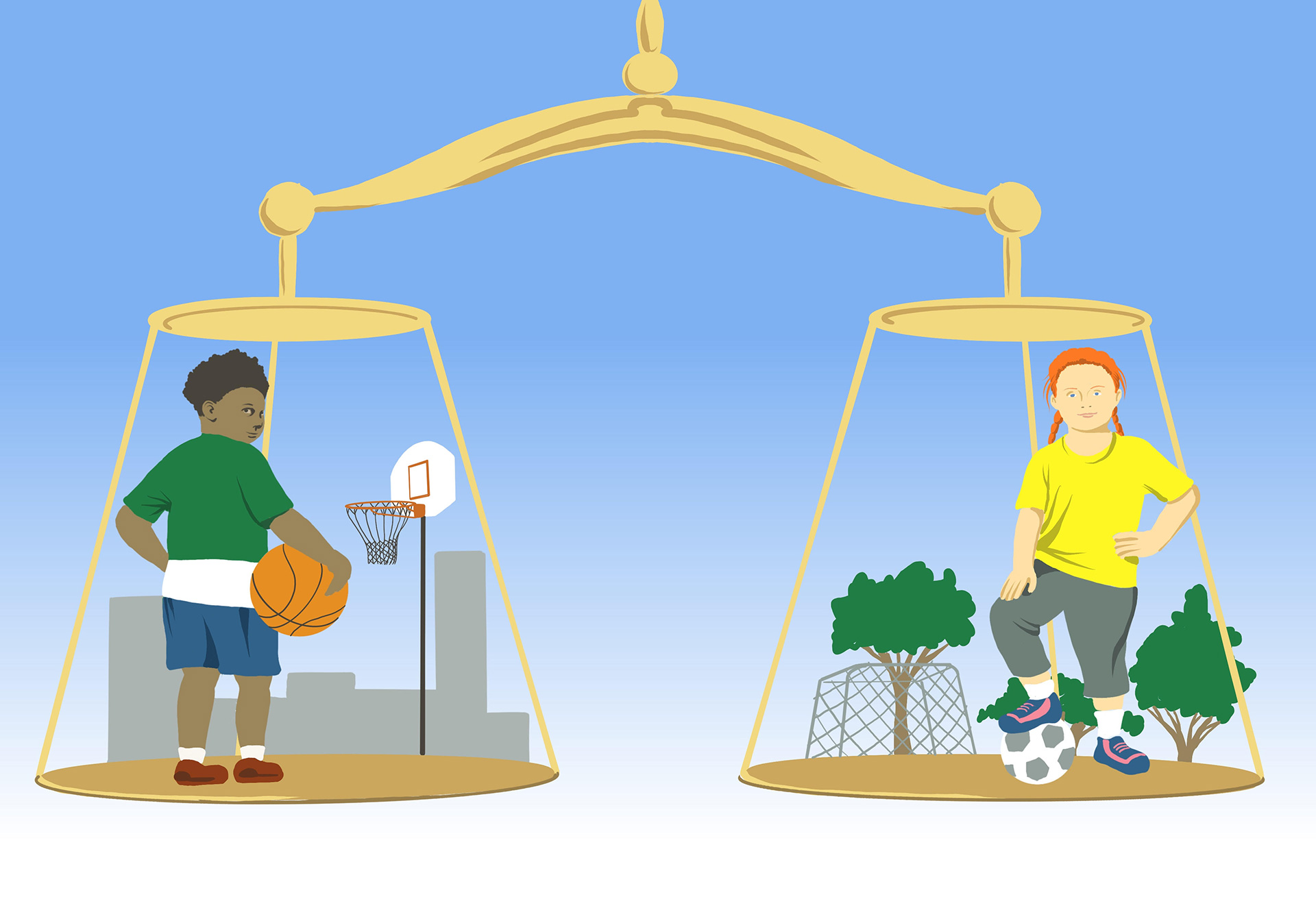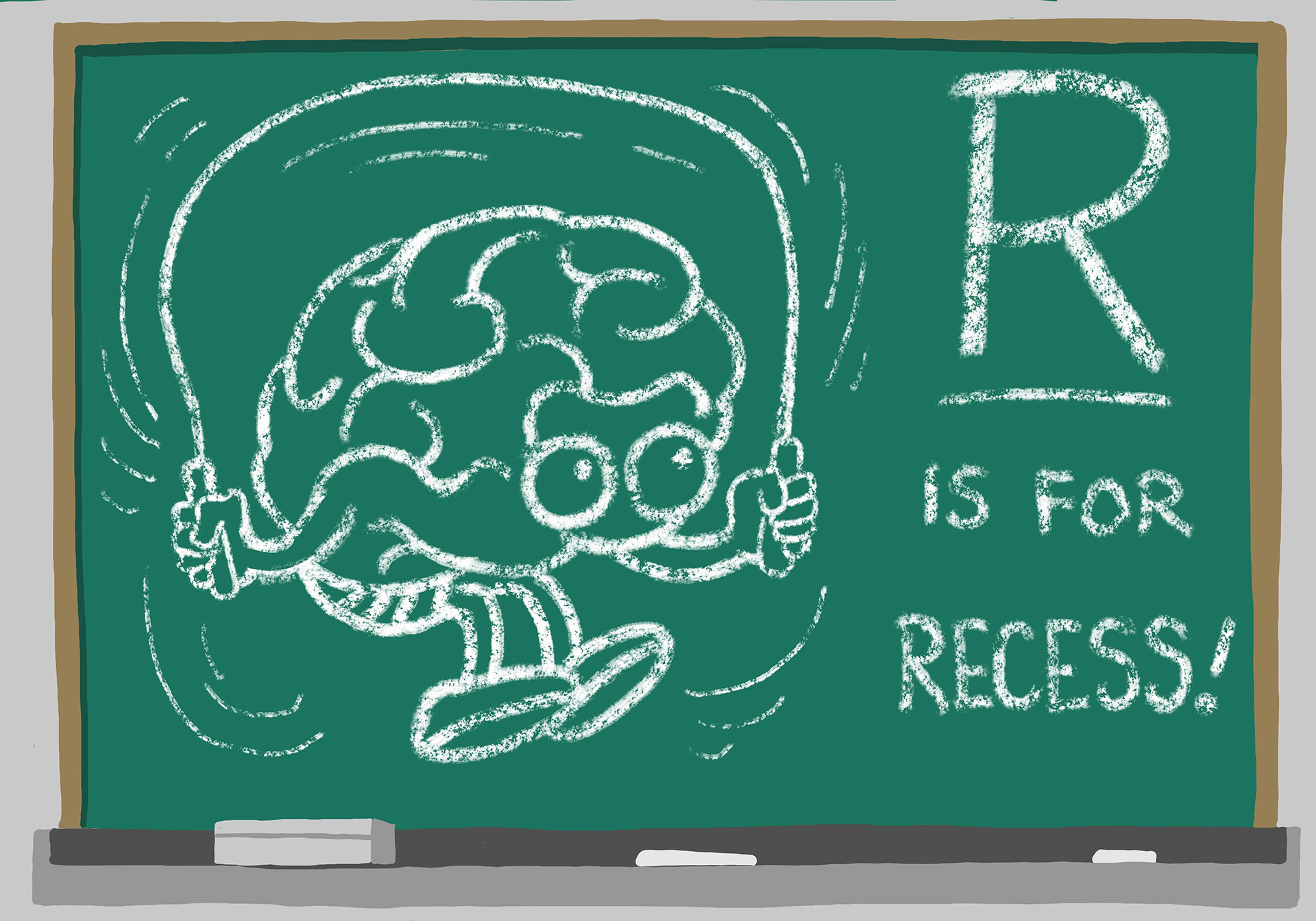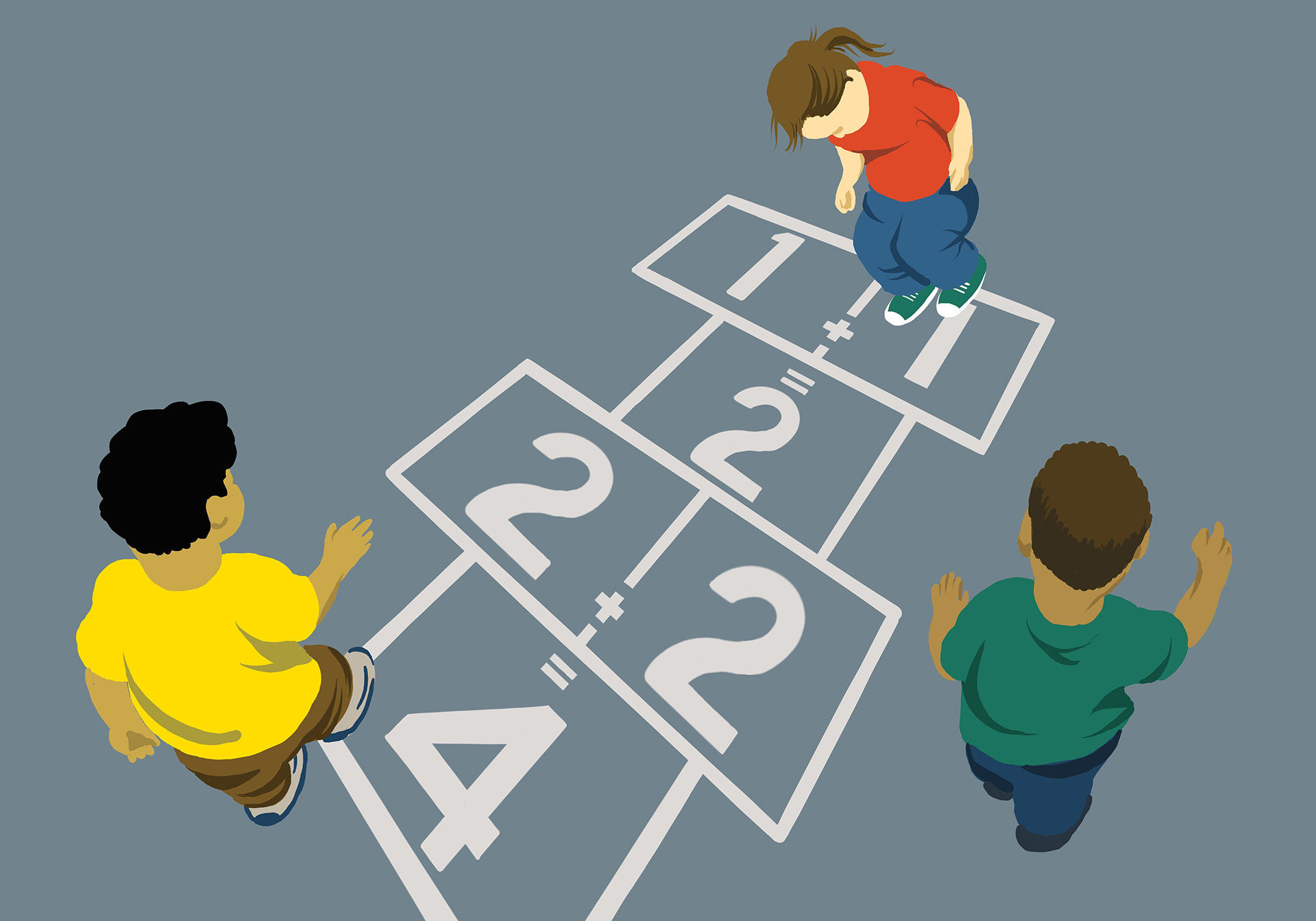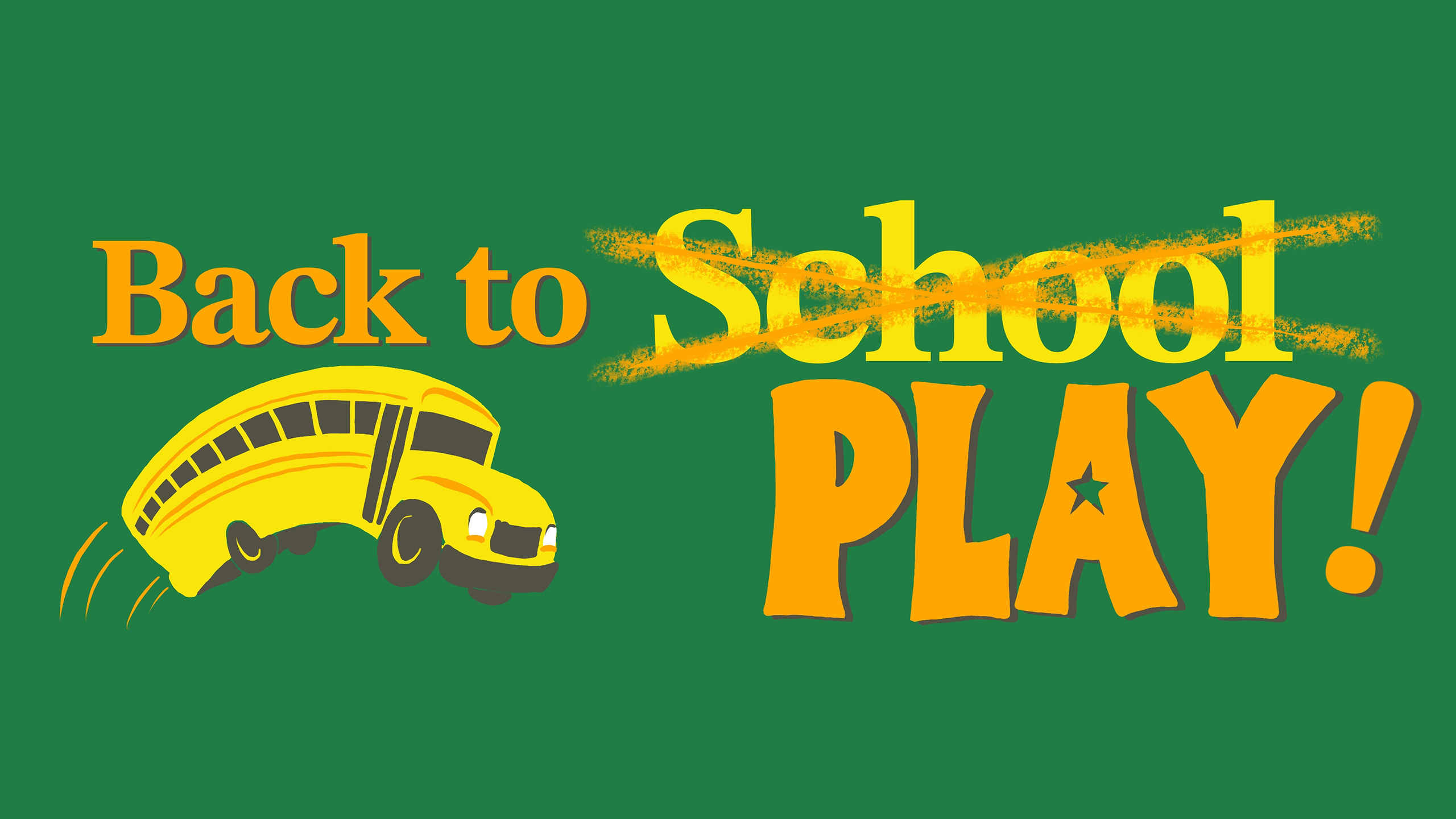It’s “back to school” time, whether the children in your life are going back to an actual school or to a child care center or a grandparent’s house. (Of course, for the youngest pupils, who are entering school or child care for the first time, the “back” in “back to school” doesn’t apply.)
Early Learning Nation magazine asked some friends for advice on how to fill this school year with play—which brain science tells us enhances learning and commonsense tells us is still the best way to have fun together.
Here’s what they said:
“Play is how we become human. When we honor the brain’s favorite way to learn, love and lead, we build a world worthy of our children’s power.”
—Berol Dewdney, pre-kindergarten teacher, Commodore John Rodgers School, Baltimore, and 2022-23 Maryland Teacher of the Year
“We can make school more fun and challenging for children at the same time. This means including children in co-developing activities and embedding cognitively stimulating activities in play-based games.”
—Megan McClelland, Ph.D., Director, Hallie E. Ford Center for Healthy Children & Families (read “Oregon’s Higher Education Partner for Early Education”)
 “We’re committed to making this upcoming 2023-24 school year the most playful in history by teaming up to end playspace inequity. We must act now to create the bold, cross-sector partnerships needed to ensure every kid has a great playspace near where they live and learn.”
“We’re committed to making this upcoming 2023-24 school year the most playful in history by teaming up to end playspace inequity. We must act now to create the bold, cross-sector partnerships needed to ensure every kid has a great playspace near where they live and learn.”
—Lysa Ratliff, CEO, KaBOOM! (read “Tackling the Play Deficit”)
“Let’s ensure teachers have the professional development they deserve and the tools to actively scaffold play development, and that we establish a powerful foundation of equity in early childhood by ensuring that play is inclusive of all children. We should invest in the idea that ‘Children learn to play and play to learn.'”
—Deborah J. Leong, Ph.D., Cofounder and Executive Director, Tools of the Mind (read “Student Kindness and Teacher Enthusiasm”)
“The way to make the 2023-24 school year the most playful in history is threefold: time, space and respect. Children need at least 30 minutes of dedicated time to reach a state of deep play, that does not include transit time; they need a space rich in physical opportunities and sensory experiences in a natural setting; and they need adults that respect the value of play in children’s development, advocating for time and space for play at school.”
—Meghan Talarowski, Founder and Executive Director, Studio Ludo
“For educators to know (and act on) that there is more than one way to learn. More than one way to participate. More than one way to be smart. More than one way to sit. More than one way to be a good student. More than one way to be a good teacher.”
—Benjamin Mardell, Project Director, Pedagogy of Play at the Harvard Graduate School of Education
“This school year is full of new questions and problems thanks to generative AI, but playful learning offers a way forward. A playful approach for educators and students alike prepares us to create, fail (and spot AI failures) and tinker as we dig into how these complicated (and sometimes deceitful) new technologies fit into our learning and society.”
—David McHugh, Teaching Faculty, Information School, UW-Madison (read “Getting Messy in Madison”)
“Like a drop in the ocean, small actions can accumulate to create meaningful change toward a playful future. Let us all pick one small thing in our learning community and try to bring more choice, wonder and delight to it. Document, reflect and try again to add to a beautiful, playful summer rain.”
—Savhannah Schulz, Doctoral Fellow, the Interacting Minds Centre, the Danish School of Education and the Playtrack Research Group
“Play opens the doors for all of us to reconnect with our inner child. It’s about recalling what we enjoyed and wished to have experienced when we were little, and then bringing those experiences to the students. In doing so, a profound sense of belonging and connection is fostered both within our students and our own inner child.”
—Vicky Yiran Zhao, researcher on child development, lifelong learning and education equality
“School can be fun and joyful! When we think about how to nurture active, playful learning, we will be encouraging teachers to rediscover their love of teaching and kids to discover their love of learning. And we know that learning lasts and can be used in new situations when it was originally learned in a way that gave students the opportunity to work with peers, relate the learning to their own lives and be actively engaged!”
—Roberta Michnick Golinkoff, Ph.D., Unidel H. Rodney Sharp Professor, University of Delaware, and author of Making Schools Work (read “How Did ‘Play’ Become a Four-Letter Word?”)
 “A nationwide legal right to recess—which is on the statute book in some states already—would be a start in recognizing the fundamental value and importance of free play in children’s lives. Alongside this, I’d love to see more support for fresh ways to enhance recess. (I am a big fan of the UK-based OPAL Programme, which has introduced a fun, permissive, can-do mindset into hundreds of schoolyards across the country).”
“A nationwide legal right to recess—which is on the statute book in some states already—would be a start in recognizing the fundamental value and importance of free play in children’s lives. Alongside this, I’d love to see more support for fresh ways to enhance recess. (I am a big fan of the UK-based OPAL Programme, which has introduced a fun, permissive, can-do mindset into hundreds of schoolyards across the country).”
—Tim Gill, scholar and author of Urban Playground (read our interview with Gill and Capita’s Ankita Chachra)
“As we plan for the upcoming school year, let’s commit to creating spaces that provide children with endless opportunities to be children. Let them explore, run wild and take risks by providing places that are safe, offer shade and have soft natural surfaces to get dirty! Let’s make the entire city their playground, bustling with nurturing and playful landscapes.”
—Ankita Chachra, Capita (read “Connecting Cities, Young Children and Climate Action”)
“Regularly invite children to use their imaginations, as well as to think critically and engage children in solving problems that you usually think can be solved only by adults.”
—Mara Krechevsky, senior researcher at Project Zero at the Harvard Graduate School of Education
“By transforming everyday spaces like barbershops, corner stores, parks and bus stops into environments that spark brain-building conversations, we can infuse playful learning into every corner of the 2023-24 school year.”
—Amanda Charles, Interim Program Officer/Senior Program Associate, Great Learning, William Penn Foundation (read about Philadelphia’s Childspace)
 “Find playful moments in everyday spaces! Play I Spy at the grocery store. Tell a story about the places you pass on the bus. The possibilities are endless!”
“Find playful moments in everyday spaces! Play I Spy at the grocery store. Tell a story about the places you pass on the bus. The possibilities are endless!”
—Sarah R. Lytle, Ph.D., Executive Director, Playful Learning Landscapes Action Network (read “A Day Trip to Philadelphia Shows What Playful Learning Is—and Isn’t”)
“Engage in play with children. It’s as simple as that. Here’s one example: Invite a child to take a walk outside with no particular destination in mind. Let them pause whenever they notice something new to investigate. Relax and enjoy the spontaneity!”
—Sharon Carver, Carnegie Mellon University’s Children’s School (read about the Children’s School)
“Play may be natural and come easily for children, but as adults, we need to consciously center play—in our schools, our classrooms and our homes. We need to stand up for play, protect the time and space for it and implement it. Maybe most of all, we need to celebrate and amplify it, shouting its effects from the rooftops to inspire others to center play.”
—Jesse Ilhardt, cofounder and executive director, VOCEL (read “Can Play Level the Playing Field in Chicago?”)
“Your question arrives in the midst of the world’s hottest summer, alongside the knowledge that today’s weather is the best we will experience in our lifetime. This school year will be filled with play if adults recognize that play strengthens our capacity to meet uncertainty, big emotions, and conflict with courage, curiosity and imagination.”
—Matt Karlsen, Center for Playful Inquiry





